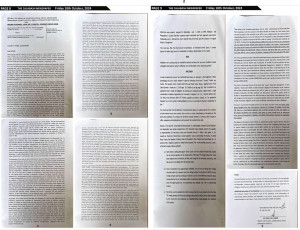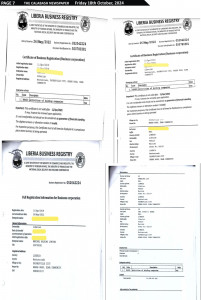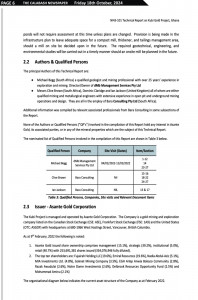By Esther Wright
In a shocking turn of events, Angela List, once a dominant figure in the mining industries of Liberia and Ghana, is witnessing the collapse of her empire amidst mounting corruption allegations. Her downfall marks the unraveling of years of influence, manipulation and controversial dealings that have now caught up with her.
For over two decades, Angela List commanded significant power in the mining sector, bolstered by her marriage to Australian mining mogul Paul List. However, the collapse of their marriage has coincided with the implosion of her business empire, exposing a trail of controversial alliances, shady deals and failed promises that have tarnished her reputation.
At the heart of Angela List’s downfall are the mining concessions in Liberia, once a source of her economic clout. Her failure to meet contractual obligations and deliver on promises has led to the revocation of these concessions, signaling the end of her dominance in the sector. For years, she had been accused of leaving chaos in her wake, with her business practices raising eyebrows among industry experts. Now, the consequences of these missteps are catching up with her as Liberia moves to reclaim control over its natural resources.
Angela List’s business troubles are compounded by a growing list of legal challenges. Accusations of fraud and embezzlement have surfaced in multiple countries, including Ghana, Jordan and Australia, placing her at the center of an international web of corruption. As the investigations unfold, many of her former allies in both the business and political spheres have begun to distance themselves from her, leaving her increasingly isolated.
Once considered untouchable due to her deep connections and political clout, Angela List now finds herself struggling to maintain her standing in a rapidly shifting landscape. Her long-time collaborators have begun to abandon her as the walls close in, signaling a dramatic fall from grace.
Amid the growing scrutiny, Angela List has reportedly resorted to manipulating the media to protect her image. Allegations have surfaced that she has attempted to suppress negative coverage and spread misinformation to shield herself from public criticism. By controlling the narrative, Angela List is believed to be working tirelessly to deflect attention from the scandals surrounding her and to salvage what remains of her reputation.
The impact of Angela List’s actions extends far beyond her personal downfall. Her involvement in both Liberia and Ghana’s mining sectors has only exacerbated existing issues of corruption, deterring foreign investors from engaging with these nations. Her toxic legacy threatens to undermine the economic progress of both countries, with investors increasingly wary of entering environments marred by political manipulation and unethical business practices.
As Liberia and Ghana strive to rebuild their economies and foster transparency, Angela List’s entanglement in corruption scandals stands as a glaring reminder of the challenges these nations face in combating entrenched systems of exploitation.
With her empire crumbling and her influence waning, there are increasing calls for Angela List to be held accountable for her actions. Political leaders, civil society groups and concerned citizens in both Liberia and Ghana are pushing for decisive measures to be taken against her. They argue that removing figures like Angela List from the corridors of power is essential to promoting transparency, good governance and the rule of law.
As the scandal continues to unfold, Liberia and Ghana are at a critical juncture. Their ability to pursue justice and accountability in this high-profile case will serve as a litmus test for their commitment to rooting out corruption and attracting ethical foreign investment.
The fall of Angela List presents an opportunity for both countries to turn the page and embrace a future built on stronger institutions, economic integrity and a clear rejection of the corrupt practices that have hindered their development for too long.







